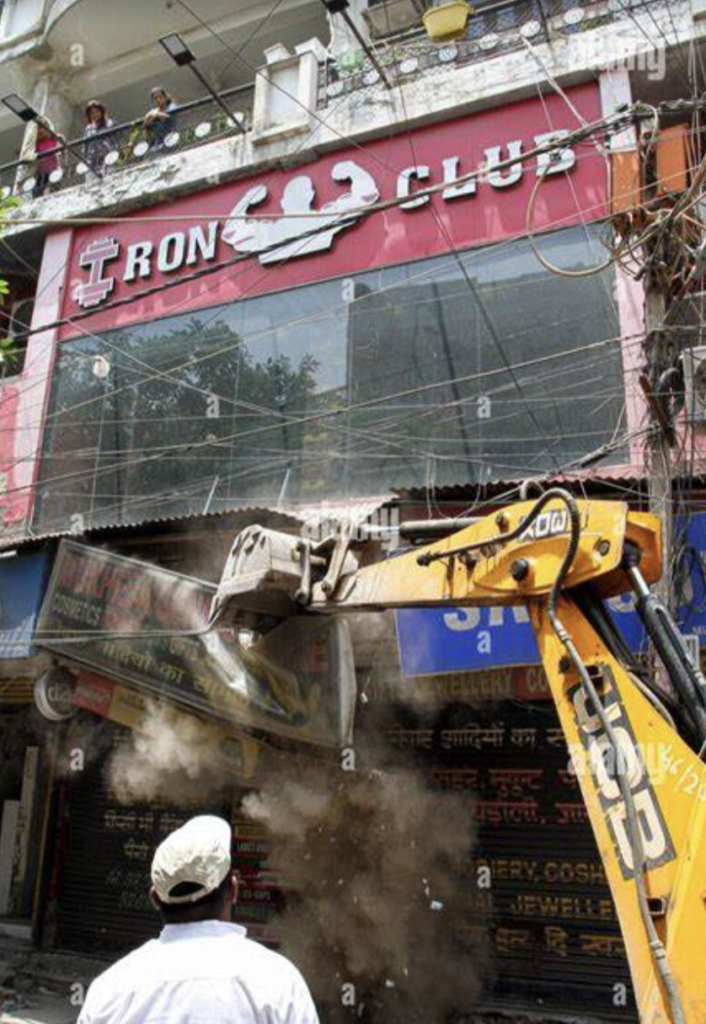
The legal implications of the Supreme Court's decision on Demolition of illegal constructions in Delhi's Vishwas Nagar area.
BACKGROUND ON THE DEMOLITION ORDER
The Supreme Court declined to intervene in the Delhi High Courts decision to order the demolition of
unlawful structures in the Vishwas Nagar neighbourhood. The Delhi Development Authority (DDA) was
instructed by the Supreme Court to halt the demolitions for 7 days so that the residents might voluntarily
vacate the area. The demolition activity started on May 22, 2023. By May 29, 2023, if the residents have
not left, the DDA may resume demolition work. The DDA has been asked to respond to the issue of
rehabilitation for people whose properties are being demolished by the first week of July by the bench of
Justices Aniruddha Bose and Sanjay Karol.

SUPREME COURTS DECISION
The Delhi High Courts order to demolish unauthorised structures in the Vishwas Nagar neighbourhood
was upheld by the Supreme Court, which declined to intervene. To allow the people to voluntarily vacate
the area, it has requested the Delhi Development Authority (DDA) to halt the demolitions for 7 days. If
the occupants do not move by May 29, 2023, it will be possible for DDA to continue their demolition
actions, the bench made clear. The bench was made up of Justices Aniruddha Bose and Sanjay Karol. The bench also requested a response from DDA regarding the matter of rehabilitation for individuals whose properties are being demolished by the first week of July.
IMPACT ON RESIDENTS
The residents of the region will be significantly impacted by the Supreme Court’s judgement to permit the removal of illegal constructions in the Vishwas Nagar neighbourhood. The Delhi Development Authority (DDA) has given the people seven days to leave the area on their own accord; in the event that they fail to do so, demolition work would resume.
The Delhi High Court was petitioned by the Kasturba Nagar
Inhabitants Welfare Association, which argued that because the residents had been there for 40 years and had all the necessary documentation to back their claims, they were qualified for rehabilitation. However, the Delhi Urban Shelter Improvement Board’s designated clusters would be the only ones to receive rehabilitation, according to the High Court, which rejected the appeal.

LEGAL IMPLICATIONS
Significant legal ramifications for the enforcement of building codes and regulations in Delhi and other
regions of India result from the Supreme Court’s decision to forgo intervening in the Delhi High Courts
decision to order the demolition of illegal constructions in the Vishwas Nagar neighbourhood. The ruling
underlines how crucial it is to follow building norms and laws in order to stop unauthorised development
and guarantee locals’ safety.
The Supreme Courts ruling emphasises the necessity of properly rehabilitating persons impacted by demolition operations. The DDA has been asked to respond to the issue of rehabilitation for people whose properties are being demolished by the first week of July by the bench of Justices Aniruddha Bose and Sanjay Karol. The judgement also emphasises the importance of careful planning and construction to guarantee that locals have access to safe and legal housing options.

SIMILAR CASES
The Supreme Court’s order to demolish illegitimate buildings in the Vishwas Nagar neighbourhood is not
an unique incident. The Maradu apartments in Kochi, Kerala, and other illegal structures have previously
been ordered to be demolished by the Supreme Court. In the Maradu case, the Supreme Court had
mandated the destruction of four residential structures totalling about 400 flats that were situated along
Kochi’s Maradu area’s coastline zone.
The Kerala government was ordered by the court to pay each homeowner Rs 25 lakh as interim compensation within four weeks. The Maradu case emphasises how crucial it is to follow building norms and laws in order to stop unauthorised development and guarantee inhabitants; safety. The case emphasises the necessity of properly rehabilitating people impacted by demolition activities as well. The ruling by the Supreme Court in the Vishwas Nagar case has significant repercussions for Delhi and other regions of India’s enforcement of construction laws and regulations. The ruling emphasises the significance of careful planning and construction to guarantee that locals have access to safe and legal housing options.







